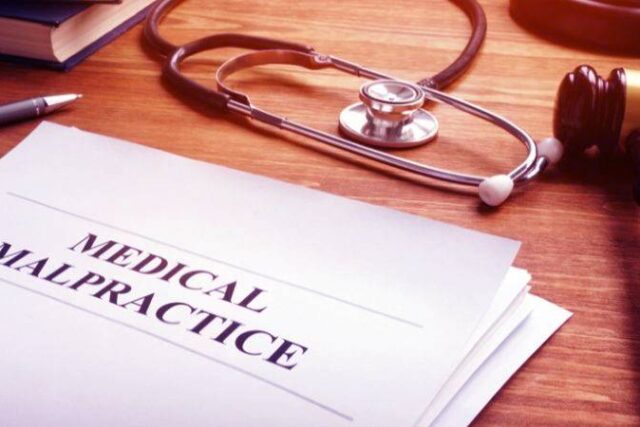When you enter into the care of a doctor or healthcare professional, there’s an understanding that they will uphold the oath that they’ve taken to protect you. And while they can’t always make you better, they shouldn’t make you worse. If you suspect the latter, you could be a victim of malpractice.
What is Medical Malpractice?
Medical malpractice is a serious term with serious implications. And while it gets used a lot, it’s important to understand what medical malpractice and what it’s not.
According to the ABPLA, “Medical malpractice occurs when a hospital, doctor or other health care professional, through a negligent act or omission, causes an injury to a patient. The negligence might be the result of errors in diagnosis, treatment, aftercare or health management.”
For an incident to be considered malpractice, it must have the following characteristics:
- Violation of the standard of care. Under the law, there are certain medical standards that professionals must abide by. If there’s a violation of these standards, then negligence may be established.
- Injury caused by negligence. It must be shown that the negligence caused the injury or negative outcome. If negligence occurred, but it has nothing to do with the negative outcome, then malpractice didn’t occur (legally speaking).
- Injury resulted in significant damages. Finally, it must be proven that the negligence caused an injury that resulted in significant damages. Damages may include pain and suffering, loss of income, disability, hardship, medical bills, etc.
If an incident doesn’t meet all three of these requirements, it’s not malpractice. In other words, just because you experience a complication, doesn’t mean you’re a victim. It could simply be that a normal problem occurred. There must be a violation of the standard of care, an injury caused by negligence, and significant damages.
4 Ways to Know if You’re a Victim
Terms like “standard of care,” “negligence,” and “damages” are for lawyers. What you really want to know is if you’re a victim. Here are some signs that you may be:
- You’re Not Getting Better
There’s never any guarantee that you’ll get better, but if you’re taking all prescribed medication, following all treatment options, and having all required surgeries and nothing is improving, it could be a sign of a misdiagnosis. (You can’t look at this factor alone, but if other factors are involved, it could be something to think about.)
- Treatment Doesn’t Align With Diagnosis
Has your doctor ordered a surgery or invasive procedure for a diagnosis that you later learned wasn’t as serious as you were led to believe? Or, on the flip side, were you never given an option for an aggressive treatment for a serious illness? Either scenario could mean malpractice.
- Delayed Diagnosis
Time can mean the difference between life and death in certain scenarios. If your doctor took longer than standard to come to a diagnosis, or if the diagnosis is delivered too late, it’s a sign of malpractice.
- Lack of Thoroughness
Not ordering standard tests, failing to ask the appropriate questions, and/or not following up after a treatment or procedure could all be grounds for malpractice. Doctors are required to be as thorough as possible. If you can prove that the doctor moved hastily – and that their shallowness led to significant damages – you’re well within your rights to pursue a claim.
What to Do if You’re a Victim of Malpractice
If you believe that you’re a victim of medical malpractice, it’s imperative that you respond swiftly and appropriately. This means opening up a claim.
As Console & Associates, P.C. explains, “Pursuing a medical malpractice and personal injury claim is crucial to your recovery and well-being. An insurance claim or lawsuit will be your only option to get compensation for the injuries you suffered due to the medical error and for the ways this injury has affected your life.”
Beyond that, your focus should be on reaching a full recovery. Nothing matters more than your physical health and emotional well-being. By hiring an attorney to handle the legal and financial side of things, you can focus on getting better.
As a general rule of thumb, document everything from the moment you realize something is wrong until there’s any sort of final decision. It’s highly recommended that you keep a journal of daily entries to describe symptoms, feelings, and any changes in your condition. This will help you develop a timeline of events, which may prove useful in a claim or lawsuit.

Lastest Posts
Education
How machine translation is changing the industry: When to use it and when to avoid it?
Health
EEG Analysis: Technology Connecting the Brain to the Future
Marketing
Advancements in Solar Panel Technology: Illuminating the Path to a Sustainable Future
Lifestyle
How to Build a Capsule Wardrobe: Essentials for Every Man
Lifestyle
Women in the Catholic Church: Roles, Recognition, and Calls for Change
Marketing
Experiential Marketing for Brands: Crafting Unforgettable Consumer Connections
Banking & Finance
Understanding the Case-Shiller Home Price Index and Its Multiple Merits